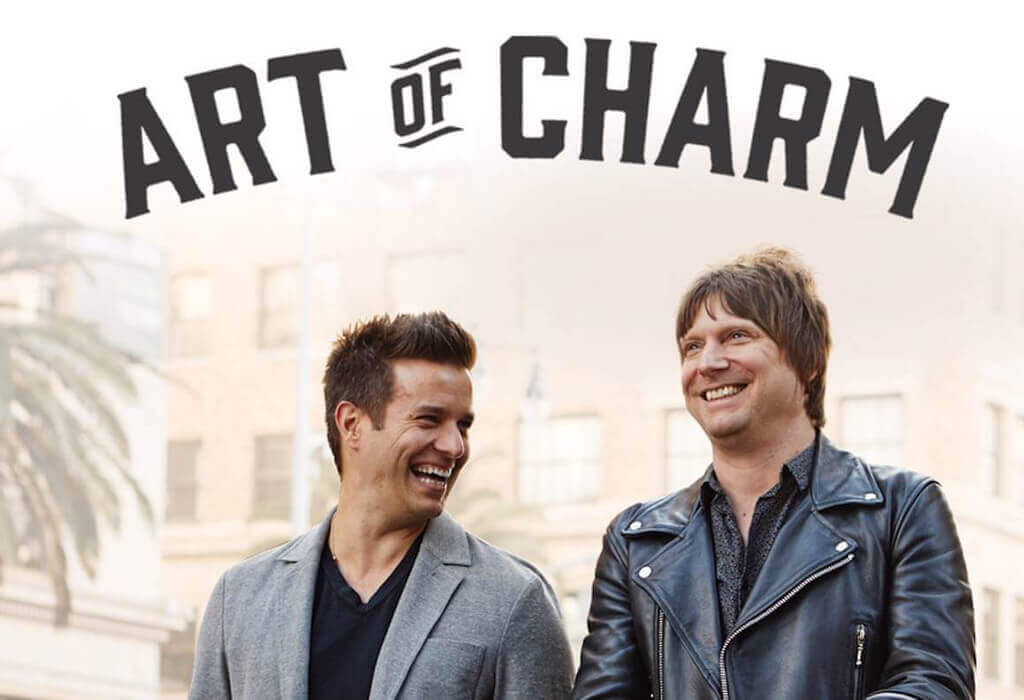
One thing missing from most modern American men’s lives is a “third place.” Sociologist Ray Oldenberg first pioneered the concept in his 1989 tome The Great Good Place, in which he explains that your third place is a hangout spot, community center or “home away from home” that provides an essential zone outside of home and work. Most guys in 2015 don’t have that third place, which means that most of us are missing out on a crucial space of expression, connection and growth.
But how does a third place differ from other places in your life? Why do you need a third place at all? And what are the benefits of having a third place as opposed to just inviting people over to your pad?
What Is a Third Place?
In its design, vibe, clientele, and intellectual environment, a third place is a welcoming space that cultivates essential social experiences in the company of like-minded people.
In terms of design, a third place is set up to be an inviting hangout spot for its denizens. Coffee shops have couches and tables. Pubs offer stools at the bar and booths where you can sit comfortably with friends. It never feels like a chore to spend time there. It’s the next best thing to setting up camp in your own living room.
A good third place is also easy to get to and is close to your home or work. You don’t have to spend a lot of time and energy getting there. You can pop in and out quickly without much stress or planning. Ideally you can walk, but you might also get to your third place by public transportation or a quick drive.
The third place is best when it’s free, but it is, at the very least, inexpensive. You don’t have to spend a lot of money to hang out there, whether that be on membership, drinks or services. This makes going there welcoming and inviting for people from every income bracket. As a result, social hierarchy tends to be suspended. Aristocrats and plebs alike hobnob. Mike the Lawyer and Joe the Barber are hanging out together, and no one is pulling rank. The lack of pretense makes this a spot where people of different classes and worlds can mingle. In the third place, people are equals.
Which explains why third places have traditionally been areas of free communication and massive change. Social movements like the French Revolution and the Civil Rights Movement began in salons and barbershops, two of the most powerful third places in history. Because of the socially leveling effect of a third place, people are free to communicate in ways they simply aren’t at home or in the office. Being able to grab a piece of that egalitarian social interaction is an important experience for every man, even if you’re not plotting to behead the Queen of France.
Third places also generally offer food and drink, the staples of socializing. Eating and drinking gives people something to do and provides a festive atmosphere to the third place. Food and drink is a common thread uniting third places as otherwise different as cafes and pubs.
On a similar note, third places are informal. They don’t have set agendas. It’s not a meeting, but a coming together. There is no dress code other than social norms. People come as they are, when they want, and leave just as easily. Third places generally do not have memberships, though a VFW Hall or other relatively informal, broad tent, low-fee membership club could be thought of as a third place.
A third place is always neutral ground — no one has any obligation to be there. There are usually employees and owners, but patrons are there because they want to be (and ideally, even the employees are socializing while they work).
Third places have “regulars.” If you go often enough, you become one. (Think of the show Cheers — a third place is “where everybody knows your name.”) If your third place is a bar, pub or coffee shop, look forward to the day the barista or bartender asks if you’ll have “the usual.” You’re more of a guest at a party than a customer in a store — another mark of the third place. People will be happy to see you show up. Strangers are approached with friendly curiosity, not hostility.
Conversation is the main focus of a third place. Drinking, games, music and dancing can all take place as well, but people in the third place are there to hang out, chew the fat, discuss the issues of the day, talk about their community, vent about jobs or just get to know one another.
The third place is fun, playful and light. Even when denizens discuss “serious” topics like politics or religion, there’s an air of levity to things. They’re not fights, but rather discussions, usually with an irreverent edge. The debate might be passionate, but it rarely gets heated. Because at the end of the day, the third place is supposed to be fun.
Why Is a Third Place Important?
A third place isn’t just a cool spot to check out. It’s important — essential, even — for a man to have one in his life. You wouldn’t sleep in the backroom at work, or invite your friends over to dinner in the office. In the same way, you need somewhere other than your home to socialize. No matter how cool your living situation is, you need to get away from it just like you need to get away from work. A third place exists specifically for this purpose.
A third place is especially important because the modern American home has effectively become a place of social isolation, particularly outside of major cities. American homes are set up to be a place of total retreat from the world, where you can zone out and exist in a bubble you construct for yourself. It doesn’t matter how many devices you have plugged in, how many parties you throw or how many emails you answer on your couch. On a basic human level, you’re still disconnected from a broader community.
That disconnect will leave you feeling even more isolated, drastically reduce the breadth of people you encounter, and decrease empathy for your fellow man. These are the common symptoms of the atomization that results from only socializing at home. Even with company, you’re often “isolated together.” There’s no real connection, just physical presence. A third place restores that connection and puts you in touch with people who are unlike you, which is an important part of growth for every man.
You’ll also be more keyed into events going on in your community when you have a third place you frequent. Where are the other cool spots in town? What exciting things are happening in your neighborhood? You’ll only learn so much from reading the weekly newspaper and checking Facebook. Most of the coolest events going on in any community fly under the radar. They advertise by word of mouth. You have to be plugged in to your community to learn about them.
It’s important to recognize that the substitutes we’ve created for this authentic connection — everything from Facebook to the evening news, Netflix to advertising — don’t truly fulfill our social needs. A virtual third place isn’t truly a third place. Sitting at home, staring at your television or browsing the Internet, you’re constantly getting fed a bunch of stressful but ultimately useless information about a new crisis every ten minutes. It’s incredibly debilitating, and even more alienating. When you get out and actually live life, you’ll spend way less time worrying about cheap entertainment or how the sky is falling around you. Your brain is going to be way more plugged into what you’re doing to worry about these artificial concerns. A third place helps you to avoid the kind of cancerous mindset that says, “There’s something better waiting for me at home,” or “Things were better in the good old days.”
So you need a third place — that much we know. The effect on your social life and psychology will be massive.
But how do you get one? Check back in, because next time I’m going to tell you how to find the right third place for you — or to create one if it doesn’t exist yet.


